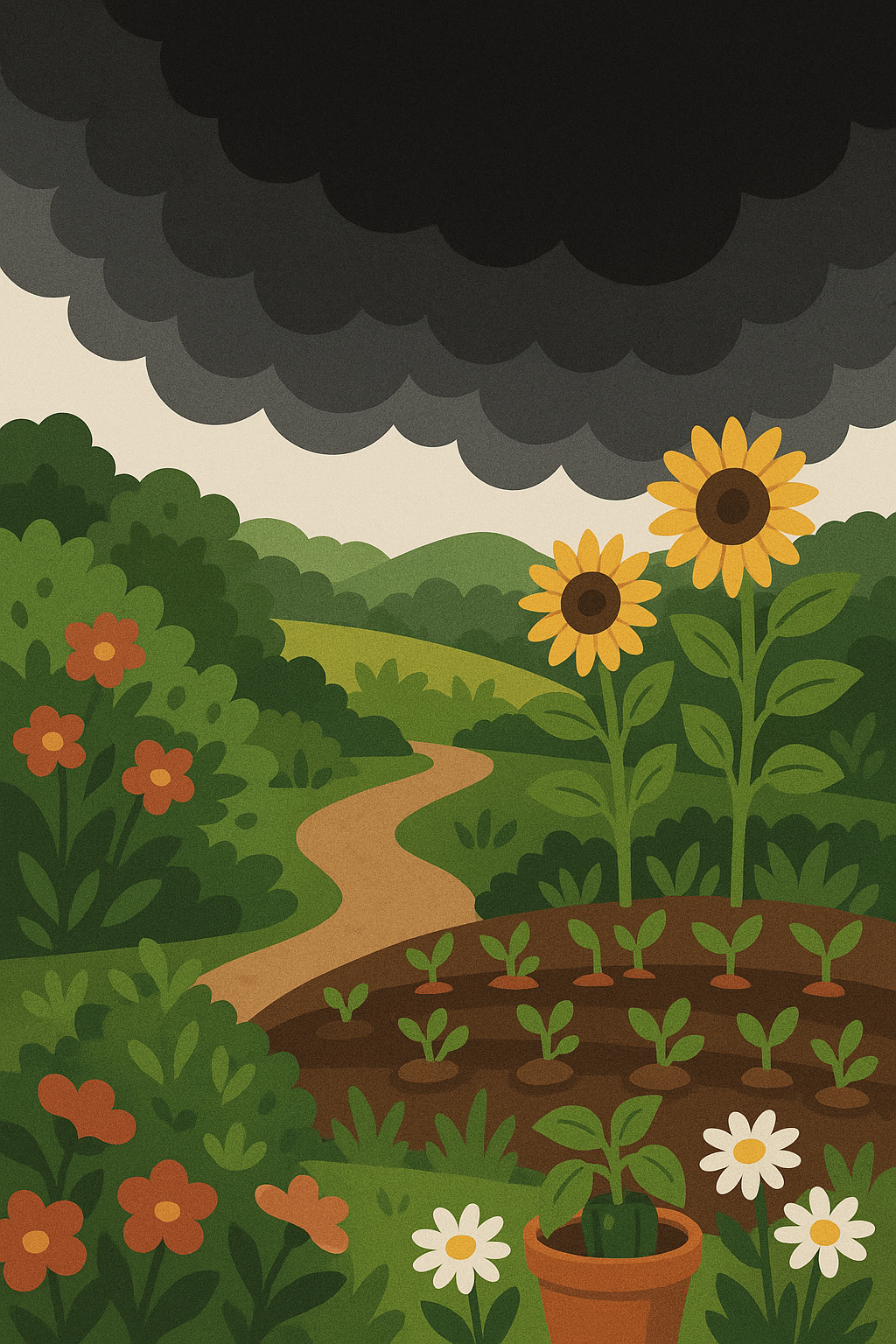We live in heavy and uncertain times. The news cycle seems relentless—political tensions, social upheaval, global instability. It’s easy to feel overwhelmed, powerless, or adrift. But in the quiet rhythm of a garden, there’s a kind of antidote.
A Gentle Rebellion Against Chaos
When we plant a seed, we are making a radical choice: to believe in the future. In times when headlines scream instability, sowing lettuce or sunflowers is a small act of defiance. The soil reminds us that cycles continue regardless of politics, that life insists on pushing upward, even in dark times.
Grounding the Mind
Gardening roots us in the present. The feel of earth on the hands, the smell of tomato vines, the sound of pollinators moving through blooms—all of these sensory experiences draw us out of spiraling anxieties and into the moment. It becomes a meditation that doesn’t ask for stillness, only care.
Building Resilience
A garden is more than beauty—it can be security. Even a few containers on a balcony can provide herbs, greens, or peppers that supplement meals and soften reliance on supply chains that feel fragile. Growing food is a quiet way to reclaim a measure of self-sufficiency.

Community in the Soil
Shared gardens and seed swaps bring neighbors together when divisions elsewhere run high. Trading a zucchini or lending a hand with watering can open doors to connection in a time when many feel isolated. Gardens stitch together small communities of care.
Hope in the Harvest
Every garden teaches patience. It insists that growth is not instant, but steady. And when the first ripe strawberry or crisp cucumber is harvested, it carries more than flavor—it carries hope. These small harvests remind us that good things still ripen in their time.
